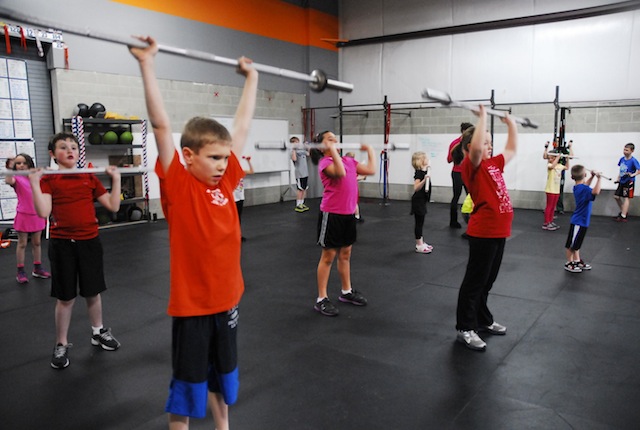
Improving the overall health of your community requires a multifaceted approach that addresses physical, mental, and environmental well-being. When individuals and organizations come together to create a supportive environment, they can make a lasting impact on the lives of people in their communities.
This article will explore strategies to promote a healthier lifestyle, foster social connections, and empower residents to take charge of their health. Let’s dive into how you can make a difference in your community’s health.
Encourage physical activity
Encouraging physical activity within a community can significantly improve overall health and well-being. If you are an older person, assisted living facilities can really help you to stay active as they host a range of activities to promote an active lifestyle. Consider these strategies to promote an active lifestyle:
- Develop walking and biking paths for safe and accessible exercise and transportation options.
- Organize community sports events, such as fun runs or sports tournaments, to promote a culture of physical activity.
- Support local fitness programs by collaborating with gyms and studios to offer discounts or free classes.
- Advocate for safe play areas, ensuring well-maintained parks, playgrounds, and recreational spaces.
- Promote workplace wellness initiatives, encouraging employers to offer programs that motivate employees to stay active.
Support public health education
Supporting public health education is essential for empowering individuals to make informed decisions about their well-being and community health. To make public health education more accessible, consider the following strategies:
- Promote online learning: With technological advancements, pursuing an MPH degree has become more convenient. Quality education leads to quality professionals, ensuring the community’s good health. Reputed universities such as Tulane University offer accredited MPH online programs to provide quality education and flexibility for aspiring public health professionals.
- Organize local workshops: Engage experts to hold seminars on various health topics, such as nutrition, disease prevention, and mental health.
- Collaborate with schools: Work with local schools to incorporate health education into their curricula and teach students about healthy habits from a young age.
- Leverage local media: Partner with newspapers, radio stations, and social media platforms to disseminate essential health information and raise awareness about pressing health issues.
- Encourage community involvement: Invite residents to participate in health-related events, and allow them to share their experiences and knowledge with others.
Advocate for access to nutritious food
People can make better dietary choices by supporting initiatives and policies that increase the availability of healthy, affordable food options. Consider implementing the following strategies:
- Support local farmers’ markets: Encourage community members to shop at farmers’ markets to find fresh, locally grown produce and support local agriculture.
- Establish community gardens: Create spaces where residents can grow their fruits and vegetables, to foster a connection to the food they consume and promote self-sufficiency.
- Partner with food pantries: Work with local food pantries to ensure they offer nutritious options and help those in need maintain a healthy diet.
- Advocate for healthier retail options: Lobby for policies encouraging supermarkets to provide more nutritious choices and locate stores in underserved areas.
- Promote nutrition education: Organize workshops and classes on healthy eating habits and meal planning to empower community members to make informed food choices.
Promote mental health and wellness
Residents can lead happier, more fulfilling lives by fostering an environment that supports emotional and psychological health. Consider these strategies to create a positive mental health atmosphere:
- Encourage stress-reducing activities, like meditation, yoga, or mindfulness workshops, to improve well-being.
- Collaborate with local mental health providers to ensure access to affordable counseling and therapy services.
- Establish peer support groups for individuals coping with grief or mental health disorders, especially if you have a loved one with dementia.
- Organize events and campaigns to destigmatize mental health issues and promote open dialogue and help-seeking.
- Partner with local organizations to offer workshops and training sessions to build emotional resilience.
Community health centers
Investing in community health centers is crucial for providing accessible, affordable healthcare services to all residents. These centers serve as essential resources, offering primary care, preventive services, and health education. To support community health centers, consider implementing the following strategies:
- Fundraise for local centers: Organize events and campaigns to fund facility improvements, equipment, and staff training.
- Volunteer your time: Offer your skills and expertise to assist community health centers, whether through administrative tasks, health education, or direct patient care.
- Advocate for government funding: Lobby local and federal government representatives to allocate resources and funding to these vital healthcare facilities.
- Raise awareness: Promote the services provided by community health centers through local media and outreach events, ensuring residents are aware of the available resources.
- Partner with businesses: Encourage local companies to support health centers through sponsorships, in-kind donations, or employee volunteer programs.
Address substance abuse and addiction
People can overcome addiction and live healthier lives through targeted interventions and support services. Consider these strategies to address substance abuse:
- Create awareness campaigns with educational materials and events that highlight substance abuse dangers and available resources for help.
- Support services include support groups, counseling, and referral programs for affected individuals and families.
- Advocate for evidence-based treatment and prevention programs within your community.
- Promote early intervention by encouraging community members to recognize addiction signs and seek help promptly, increasing recovery success chances.
Foster social connections
Strong social connections provide emotional support, improve mental health, and promote a sense of belonging. To nurture social connections in your community, consider implementing these strategies:
- Organize neighborhood gatherings: Host events like block parties, picnics, or potlucks to encourage interaction and relationship-building among residents.
- Create volunteer opportunities: Inspire community members to engage in local volunteer projects and promote a sense of shared purpose and camaraderie.
- Establish social clubs: Facilitate clubs and interest groups, such as book clubs, sports teams, or hobby groups that allow residents to bond over shared passions.
- Promote intergenerational connections: Organize events that unite individuals of all ages to foster understanding and respect between generations.
- Encourage inclusive spaces: Ensure community spaces and events are accessible and welcoming to everyone, regardless of age, ability, or background.
Prioritize environmental health
Prioritizing environmental health is crucial for a community’s long-term well-being. A healthy environment ensures cleaner air and water, reduced pollution, and better health outcomes. To protect and promote environmental health, consider these strategies:
- Support recycling programs to conserve resources and minimize pollution.
- Develop green spaces, such as parks and community gardens, for clean air, recreation, and mental well-being.
- Advocate for renewable energy sources, like solar or wind power, to reduce pollution and reliance on fossil fuels.
- Implement water conservation initiatives and policies to protect local water resources.
Empower community advocacy
Empowering community advocacy is crucial for sustainable change and improved overall health. Involving residents in decision-making fosters ownership and responsibility. Implement these strategies:
- Host town hall meetings for dialogue and resident input.
- Offer training and workshops to build advocacy, communication, and leadership skills.
- Support community-led health-focused initiatives.
- Collaborate with schools, businesses, and nonprofits to amplify community voices.
Conclusion
You’ll need to take several steps to boost public health in your area. Promote healthy habits by getting moving and funding community health initiatives. Help people access healthy food and treat mental health as a top priority. Community health clinics, substance addiction education, social networks, clean environments, and community activism should all get your attention. Using these measures will lead to a healthier community for everyone living there. These tactics are essential to create a community that promotes health and wellness.


















Follow Us